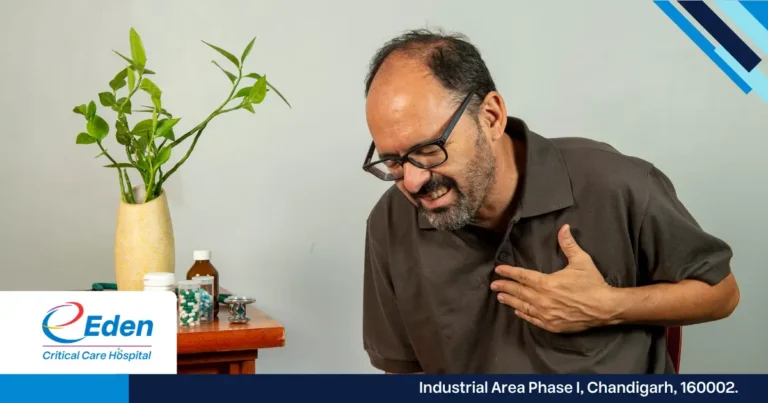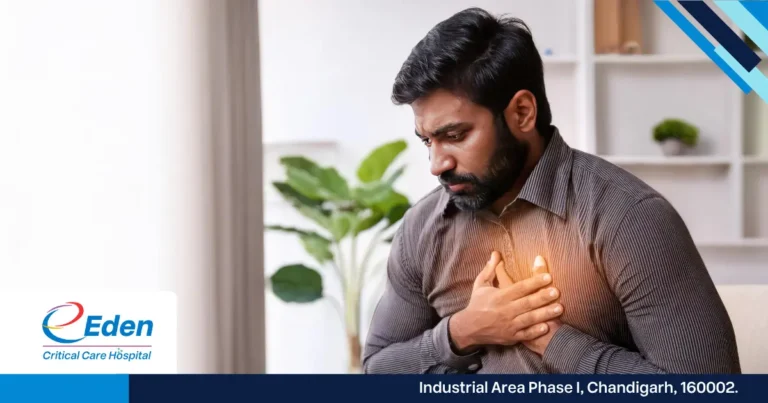Heart Attacks in 30s: 10 Alarming Signs in Young Adults!
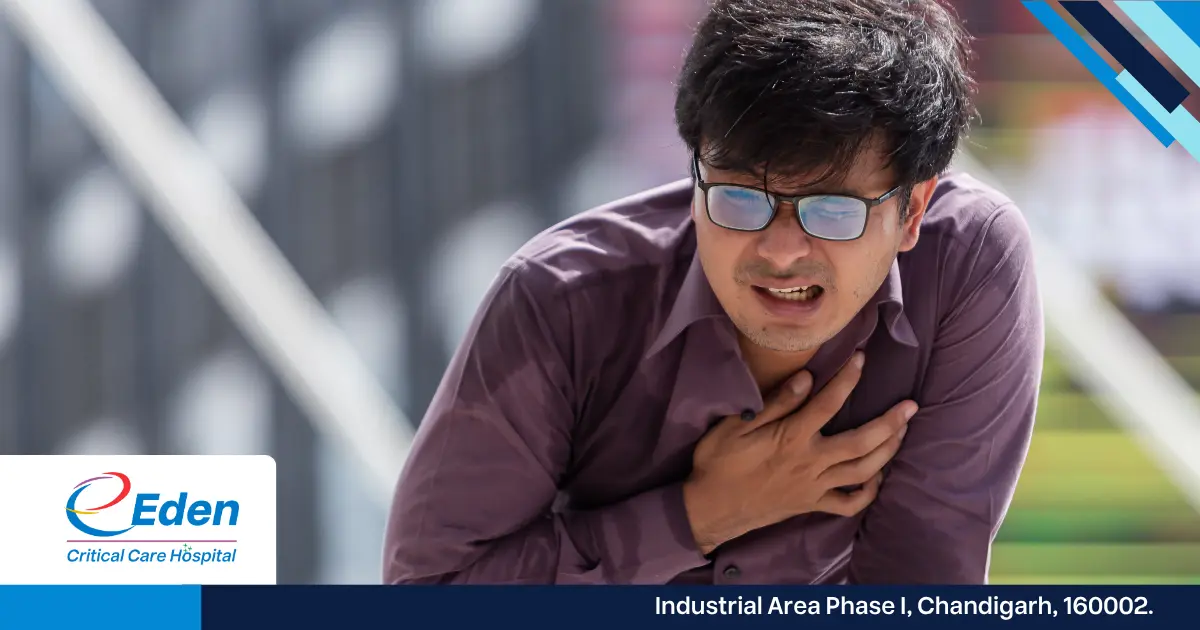
A 28-year-old marketing executive, perfectly “fit” by Instagram standards, collapsed during his morning run. No prior health issues. No family history. He didn’t survive.
Sounds rare? It’s not.
Heart attacks are no longer just an “old people’s problem.” They’re showing up in our 20s and 30s, and worse, they’re often ignored, misdiagnosed, or brushed off as stress, acidity, or just “too much screen time.”
The scary part? Your body may already be sending you warning signs, but if you don’t know what to look for, you’ll keep walking straight into danger.
In this article, I’ll walk you through 10 alarming signs of heart attacks in young adults, plus the risky lifestyle habits, emergency actions, and prevention tactics you can’t afford to ignore.
Because saving your heart doesn’t start in your 60s, it starts now.
Why This Needs to Be Said: Heart Attacks Aren’t Just for the Old
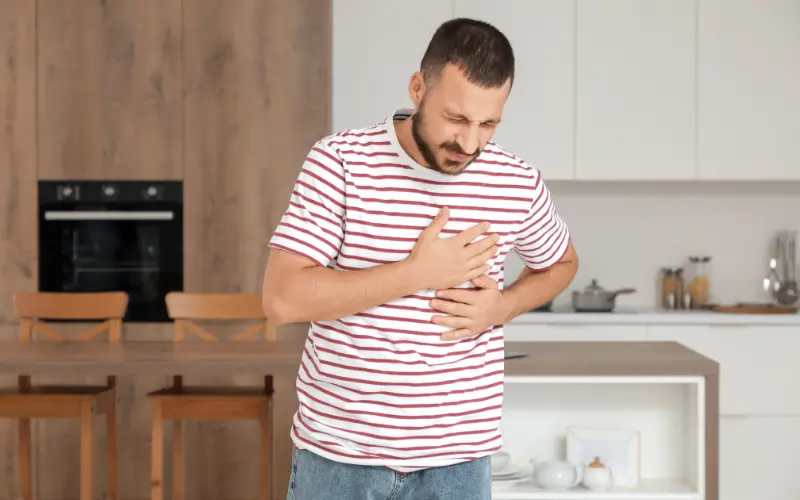
“I’m too young for this.”
That’s the first thought that crosses most young minds when they feel a weird pain in the chest, a sudden shortness of breath, or a strange fatigue that just won’t go away.
But here’s the harsh truth: Heart attacks don’t ask for your birth certificate.
In the last decade, India has seen a sharp rise in heart attack cases among people in their 20s and 30s, some as young as 19. Shocking, right?
A combination of high-pressure lifestyles, poor sleep, junk food, and zero movement has made young hearts vulnerable. Add genetics, social habits like smoking and binge drinking, and you’ve got a cocktail more explosive than you think.
Still think it’s just an old man’s disease?
Young influencers, athletes, IT workers, and entrepreneurs, seemingly “healthy,” have become headlines for all the wrong reasons. The age group once considered immune is now on the radar.
So, if you’ve been thinking, “I’ll start taking care of myself later,” just remember: Later might be too late.
Early Signs of Heart Attack in Young Adults
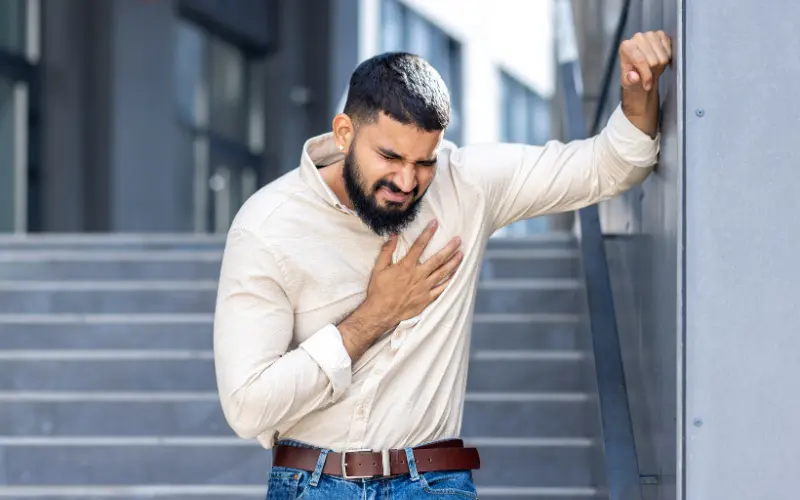
Here’s the sneaky part:
Heart attacks in young adults often don’t look like the dramatic movie scene with someone clutching their chest and falling over. In reality, the signs are subtle and dangerously easy to ignore.
The “Ignored” Symptoms You Might Dismiss
- Chest discomfort, not pain: It may feel like pressure, squeezing, fullness, or even mild indigestion. Many brush it off as gas or stress.
- Pain in unexpected places: You might feel discomfort in your jaw, shoulder, neck, or back, not even realizing it’s your heart sending out a distress call.
- Unusual fatigue: Feeling drained even after rest? Fatigue that doesn’t make sense could be your body warning you of poor blood flow.
- Shortness of breath: Especially after minimal activity or even while resting. It’s not always about your lungs.
- Cold sweats and dizziness: Not related to heat or anxiety? It could be your body reacting to reduced circulation.
- Nausea or light-headedness: Common in women, these symptoms are often mistaken for food poisoning or acidity.
Why These Signs Get Ignored
Because they don’t feel deadly. And young people are conditioned to think they’re invincible, so we reach for antacids, energy drinks, or worse, we just “sleep it off.”
But here’s the golden rule: If your body is acting weird and you can’t explain why, don’t wait. Investigate.
Why Are Young People Getting Heart Attacks?
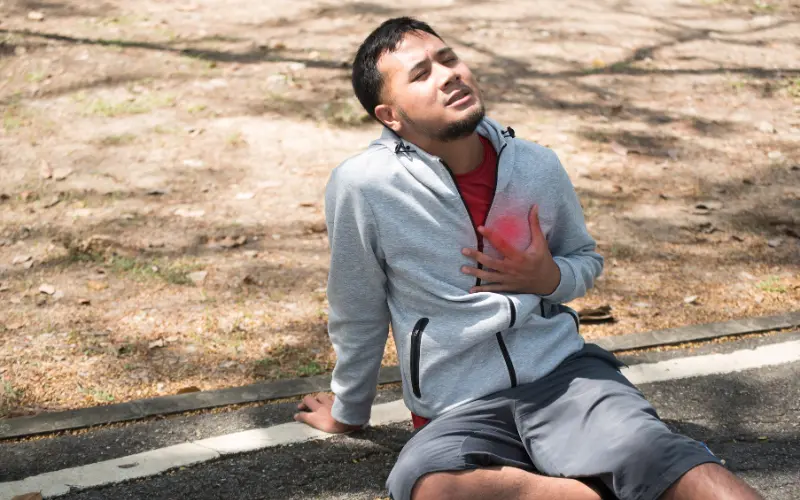
If you’re wondering, “How is this even possible?” you’re not alone.
Just a few decades ago, heart attacks in people under 40 were rare. Today? They’re a disturbing norm. So what changed?
The 20s and 30s Aren’t Risk-Free Anymore
Let’s break down the real culprits, and no, age isn’t one of them.
- Sedentary Lifestyle & Poor Nutrition: Hours on the laptop, meals from food delivery apps, zero physical activity. This combo is wrecking young hearts slowly and silently.
- Stress, No Sleep, Overwork: Welcome to hustle culture, where sleep is sacrificed and mental health is mocked. Chronic stress floods your body with cortisol, which inflames your arteries and spikes your blood pressure.
- Smoking, Alcohol, Steroids, and Drugs: These aren’t just bad habits anymore; they’re direct attacks on your cardiovascular system. Even “occasionally” can be enough to trigger plaque buildup or clot formation.
- Gym Supplements & Steroid Misuse: Think protein shakes and pre-workouts are always safe? Think again. Misuse of gym aids, especially steroids, can silently strain your heart over time.
- Family History and Genetics: If your parents or grandparents had heart issues, your risk shoots up even if you feel “fit.” Genes might load the gun, but your lifestyle pulls the trigger.
It’s not your age. It’s your lifestyle.
Are You At Risk?
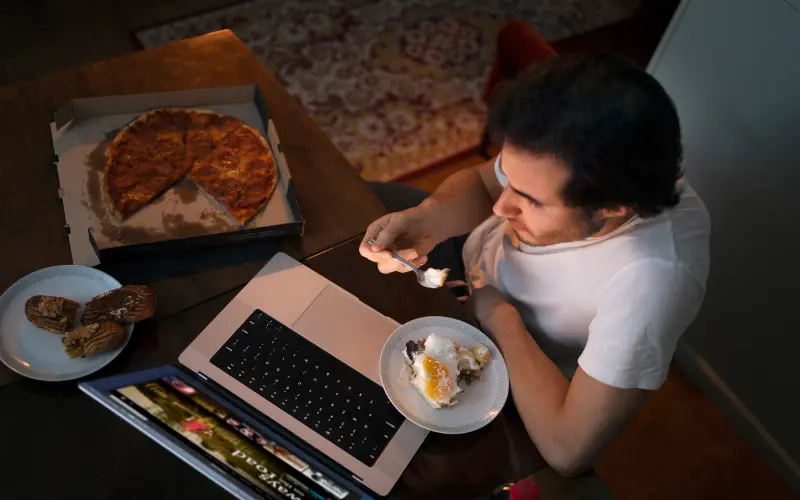
You don’t have to be obese or grey-haired to be at risk of a heart attack. In fact, many young people walking around with a ticking time bomb inside have no clue until it’s too late.
Risk Factors Every Young Person Should Know
- High BMI (Body Mass Index): Carrying excess weight, especially around your belly, puts extra strain on your heart and increases the risk of blockages.
- Cholesterol and Blood Pressure: You might look slim and active, but if your cholesterol or blood pressure is high, you’re still at risk. These two silent killers don’t care about your selfie angles.
- Hidden Health Conditions: Ever heard of PCOS, diabetes, or thyroid imbalance being heart-related? They are. These conditions alter your metabolism and hormone balance, making your heart work harder.
- Family History of Heart Disease: If heart problems run in your family, you should be on high alert even if you have zero symptoms. Genetics silently stacks the odds.
- Smoking and Alcohol Use: Yes, we’re repeating it because it’s that important. Social smoking or weekend binge-drinking? Still counts.
- Poor Sleep & Chronic Stress: If you’re surviving on 4-5 hours of sleep and pride yourself on “always grinding,” your heart is silently suffering.
A Quick Gut Check:
If you tick even 2-3 of the above, you’re not in the clear. If you tick more than 3, a heart screening isn’t optional; it’s urgent.
What Tests Should You Get Done?
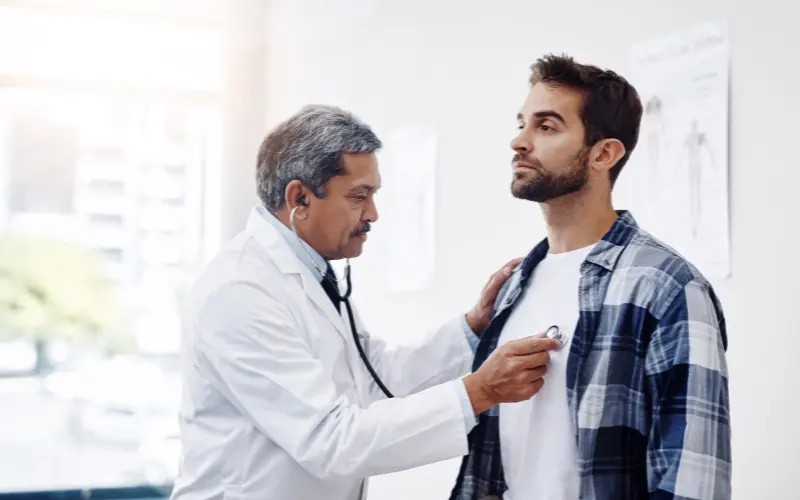
Let’s be honest, most people under 35 don’t even think about getting their heart checked. But by the time symptoms show up, it’s often too late.
So let’s break that cycle right here.
Screen Before It’s Too Late
You don’t need a massive hospital bill to know your heart’s condition. Start with these basic yet powerful diagnostic tests:
- ECG (Electrocardiogram): A simple, non-invasive test that checks your heart’s rhythm and electrical activity. It can pick up irregularities or signs of past silent heart damage.
- 2D Echo: Gives a visual of your heart and shows how well it’s pumping. This test can spot valve issues, clots, or weakened heart muscles.
- Lipid Profile: Checks the levels of good and bad cholesterol. High LDL (bad cholesterol) and triglycerides? That’s a red flag waving at full speed.
- Blood Sugar Test (Fasting & Post Meal): Even borderline diabetes increases your risk of heart disease dramatically. Monitor it early.
- Blood Pressure Monitoring: Too high? Too low? Both are dangerous if not regulated. Know your baseline.
When Should You Get Tested?
- If you have a family history of heart disease, start screenings from age 25.
- If you’re overweight, smoke, or drink regularly, now is the right time.
- If you’ve experienced any unusual symptoms breathlessness, fatigue, or chest tightness, don’t wait.
And remember, Annual heart check-ups aren’t just for your parents anymore.
Think of it as servicing your engine; ignore it, and even a brand-new car can break down.
What To Do If Someone Collapses Near You
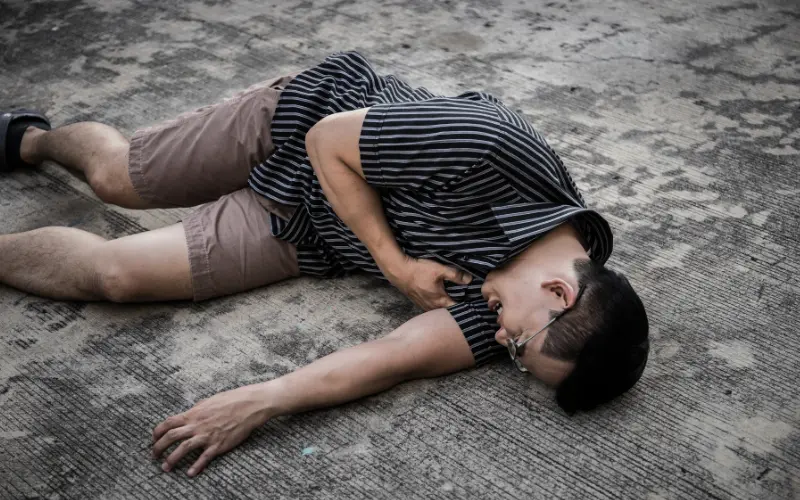
Heart attacks don’t always come with a warning. Sometimes, someone collapses right in front of you at the gym, on the street, or in your home.
And in that moment, what you do in the next 5 minutes can decide whether they live or die.
The Life-Saving Steps No One Talks About
1. Recognize the Signs of a Heart Attack or Sudden Cardiac Arrest
- If someone clutches their chest, gasps for air, or suddenly collapses…
- If they’re unresponsive and not breathing normally…
Don’t waste time guessing. Assume the worst. Act fast.
2. Call Emergency Services Immediately
In India, dial 108 or your local emergency number.
Give your exact location and say, “Possible heart attack. Patient unconscious and not breathing.”
Don’t downplay it. Be loud and clear.
3. Start Hands-Only CPR
- Push hard and fast in the center of the chest about 100-120 compressions per minute (think: the beat of “Stayin’ Alive” by the Bee Gees).
- Keep going until help arrives or they start breathing.
You don’t need to be a doctor. You just need to act.
4. Don’t Try to “Wake Them Up” with Water or Slaps
This wastes precious seconds. If the heart has stopped, the only thing that can save them is CPR + immediate medical help.
5. If an AED (Automated External Defibrillator) is Available, Use It
Many gyms, malls, and airports have them now. Follow the instructions; they’re designed for untrained users.
Can You Prevent It?
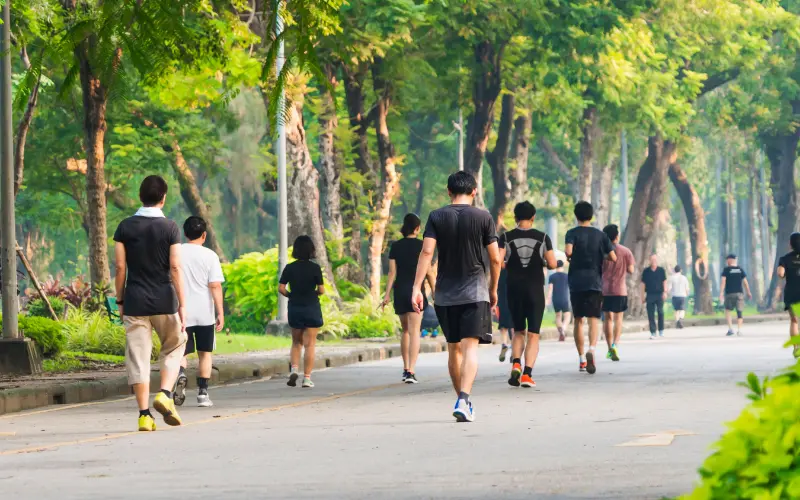
Absolutely, and you don’t need to overhaul your entire life to do it. Small, consistent actions can protect your heart and extend your years.
Simple Lifestyle Habits That Protect Your Heart
Let’s skip the fluff. If you’re serious about prevention, these are the basics you can’t afford to ignore:
- Move Your Body: Just 30 minutes of walking, dancing, or stretching daily can reduce your risk dramatically.
- Eat Smart: Prioritize whole foods, healthy fats, and cut the junk. Your arteries will thank you.
- Sleep Well: 7–8 hours per night keeps your blood pressure and stress hormones in check.
- Manage Stress: Meditate, journal, or just take breaks. Chronic stress is a hidden killer.
- Ditch Bad Habits: Quit smoking, limit alcohol, and stay away from gym steroids or unregulated supplements.
- Get Regular Check-ups: Annual heart screenings aren’t just for seniors. Start now, especially if you’re at risk.
The smartest people I know aren’t the busiest; they’re the ones who’ve made health their priority.
Frequently Asked Questions
Q1: Can heart attacks happen at 25?
Yes. While rare, it’s increasingly common due to lifestyle factors like stress, poor diet, smoking, and lack of exercise.
Q2: What are silent heart attack symptoms?
Mild chest discomfort, jaw or back pain, unexplained fatigue, and shortness of breath are often mistaken for acidity or anxiety.
Q3: Can stress alone cause a heart attack?
Chronic stress increases blood pressure and inflammation, which significantly raises heart attack risk even in young people.
Q4: What foods help reduce heart risk in young people?
Leafy greens, berries, nuts, fatty fish, whole grains, and foods rich in fiber and antioxidants support heart health.
Q5: Is gymming dangerous for heart health?
No, but misuse of supplements, steroids, and overtraining without proper rest can strain the heart. Balanced workouts are beneficial.
Conclusion:
Young doesn’t mean safe anymore.
Heart attacks aren’t waiting for you to hit 50. They’re happening now to students, professionals, gym-goers, and seemingly “healthy” individuals who never saw it coming.
The scary part? Most of them ignored the early signs. The hopeful part? You don’t have to.
Understand your risk, act on your symptoms, and take preventive steps today, not tomorrow, not “after this project,” not “when life slows down.”
And if you’re experiencing any unusual signs, chest discomfort, breathlessness, extreme fatigue, or just want peace of mind, book a heart health consultation with Eden Hospital.
Your heart’s not too young to break. But it’s definitely young enough to save.

